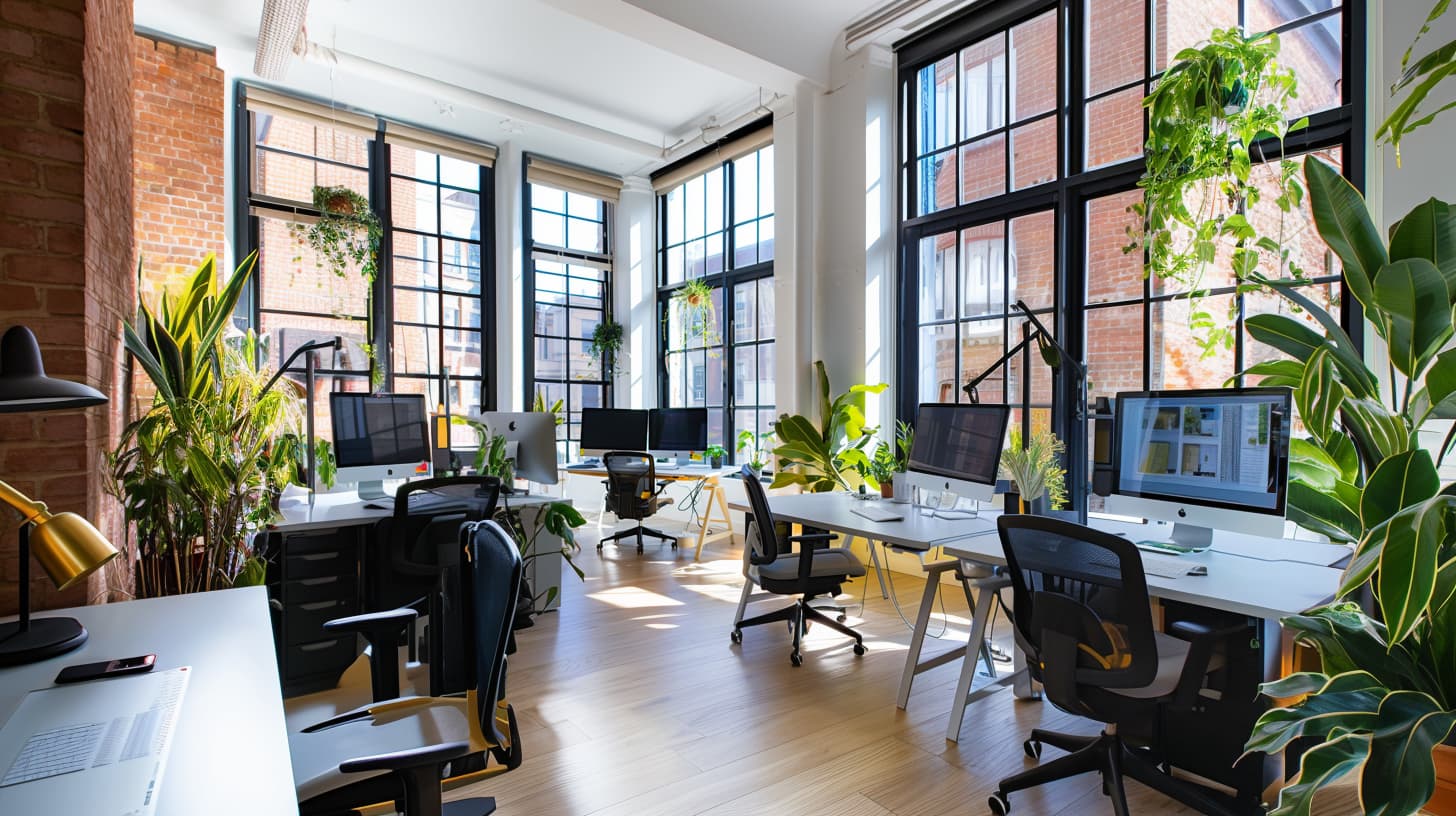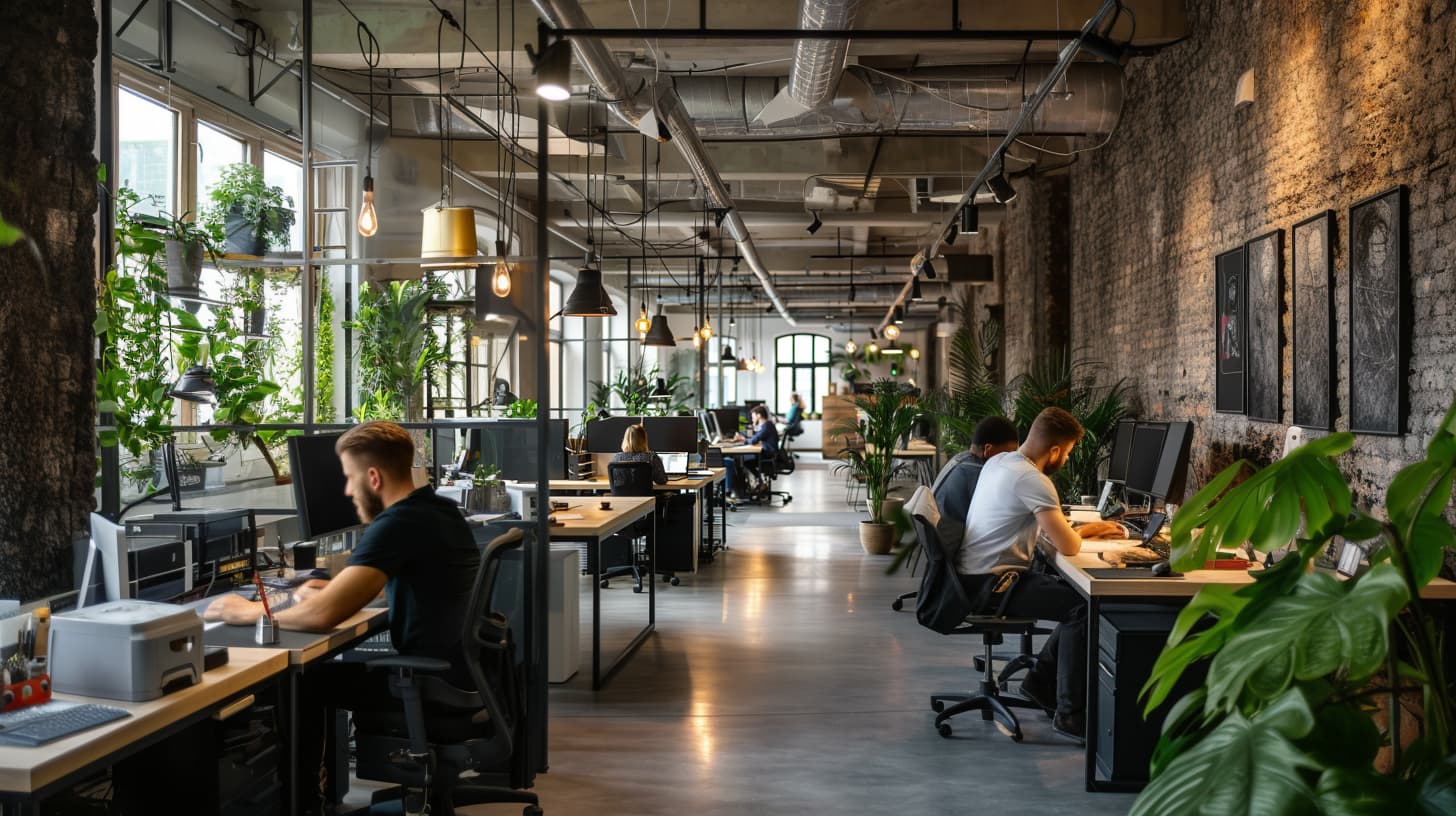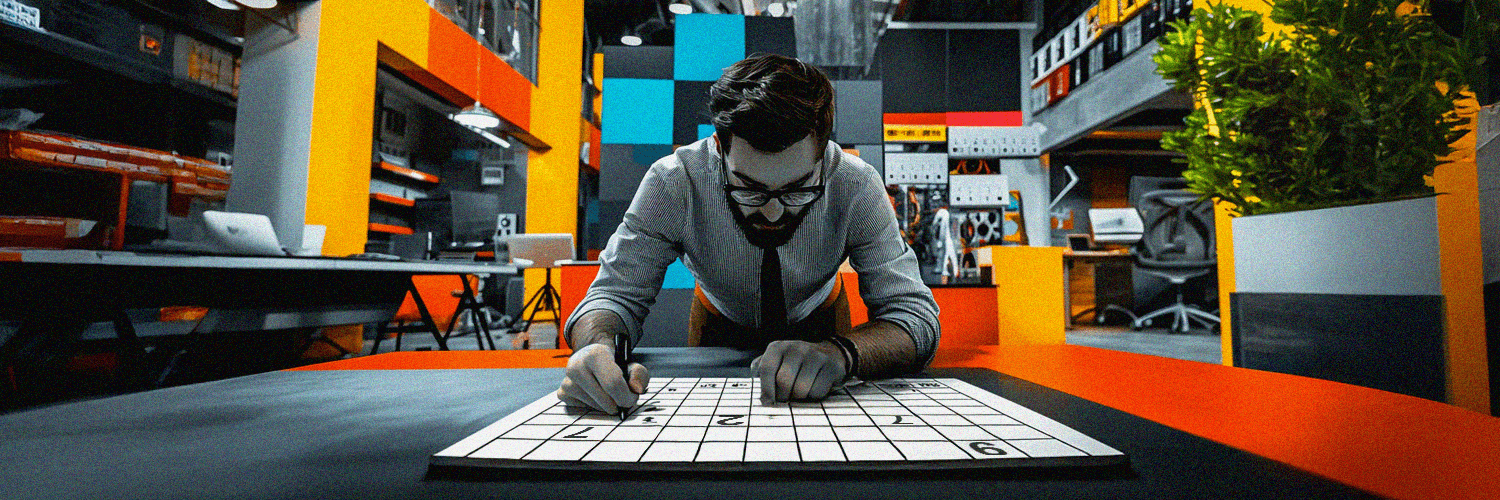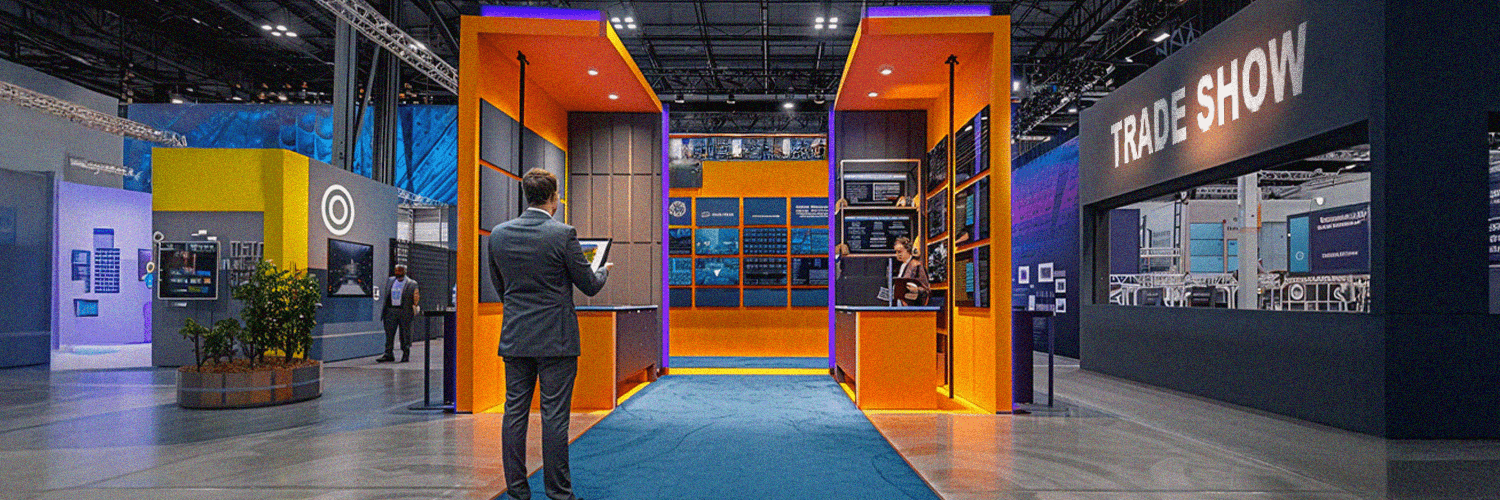As we navigate through the digital evolution of office environments, where every square foot and minute counts, desk booking emerges as a concept and a strategic solution reshaping our daily routines. From the bustling streets of global business hubs to the quiet corners of niche firms, how we interact with our workspaces is transforming.
We invite you on an enlightening journey into the world of desk booking—a seemingly mundane process redefined as a pivotal tool for modern businesses seeking to maximize their most valuable assets: space and human potential. Let’s delve into what desk booking means, its multifaceted benefits, the best practices that make it work, and the real-life success stories that illustrate its impact. Prepare to reimagine your workspace, where every desk tells a story of efficiency, collaboration, and adaptability in changing work paradigms.
TL;DR:
- Desk booking is a strategic approach allowing employees to reserve workspaces for specific times, supporting fluid and flexible working environments.
- Various desk booking arrangements include hot desking, desk hoteling, and permanent desk assignments, each catering to different needs and offering varying levels of flexibility.
- Benefits of desk booking include efficient space utilization, cost savings, support for hybrid work models, enhanced collaboration, and improved employee wellness.
- Challenges of implementing desk booking include cultural resistance, resource management issues, ensuring fairness, training requirements, and data security concerns.
- Best practices for managing desk booking include offering flexibility, clear guidelines, hygiene protocols, feedback mechanisms, and utilizing user-friendly booking software.
- Desk booking software systems, digital platforms for workspace reservation, enhance office space efficiency, support hybrid work, and offer employees flexibility.
What Is Desk Booking?
In simplest terms, desk booking is the process by which employees reserve their working station or hot desk in the office for specific time frames. Depending on company policies and requirements, desk reservation could be done daily or over longer periods.
Desk booking makes workplaces more fluid and caters to flexible working styles. In traditional offices, every employee typically had their designated spot permanently assigned—an arrangement that quickly becomes inefficient when companies embrace hybrid working models or deal with fluctuating staff levels. Modern workplaces shift from viewing offices as fixed spaces stuffed with cubicles to viewing them as platforms facilitating collaboration and communication among team members who may not always be physically present there all the time.
Therefore, desk booking comes across as an intelligent space management solution that blends optimal office space utilization with versatile work routines—a testament to how far we've come from when one size was assumed to fit all in the corporate world!

Types of Desk Booking Arrangements
Let's examine the various types of desk booking arrangements, exploring how each can accommodate different organizational needs and work styles.
Hot Desking
Hot desking refers to an arrangement in which no one has assigned seats; instead, hot desks are shared among employees on a demand basis. When someone needs a workspace, they simply select an available hot desk from the pool, eliminating wasted space from unused workstations. In such setups, desk booking systems prove their mettle by allowing staff members to book workspaces before arriving at the office.
Desk Hoteling
Desk hoteling takes hot desking to another level of sophistication. There are some semi-permanent assignments, but there is flexibility for sharing workspace when needed. Employees can reserve time slots at specific desks ahead of time—just like reserving rooms at hotels. Here, too, desk booking software simplifies access control and scheduling, effectively overcoming potential challenges like double booking or overlap in schedules.
Assigned Permanent Desks
This arrangement is somewhat opposite to a hot desking or hoteling scheme—each employee has their designated workspace, which cannot be used by others without permission/allocation change. Even in such scenarios, desk booking software can be beneficial, particularly in large organizations with multiple office locations. They allow managers to keep an eye on who's seated where (using a digital office map or a floor plan) and make necessary alterations as required without compromising on employee experience.
Feature |
Hot Desking |
Desk Hoteling |
Assigned Permanent Desks |
|
Desk Assignment |
No assigned seats, hot desks are shared on a demand basis. |
Semi-permanent assignments with flexibility for sharing. |
Each employee has their designated workspace. |
|
Desk Booking Method |
Desks are selected from a pool on a first-come, first-served basis. |
Time slots at specific desks can be reserved in advance. |
Desk booking software not applicable for daily use but useful for managing multiple locations. |
|
Flexibility |
High flexibility, ideal for maximizing space utilization. |
High flexibility with a bit more structure compared to hot desking. |
Low flexibility, spaces are fixed unless changes are made by management. |
|
Use of Desk Booking Systems |
Essential for managing occupancy, availability and avoiding conflicts. |
Crucial for access control, scheduling, and preventing overlaps. |
Useful for overseeing arrangements and making adjustments in large organizations. |
|
Best for |
Dynamic, fast-paced work environments with fluctuating desk needs. |
Organizations that desire flexibility with some level of consistency. |
Companies with a traditional approach to workspace allocation or with employees who require specific setups. |
Comparing different desk booking arrangements
What Are the Benefits of Desk Booking?
Desk booking, specifically when managed with hot desk reservation tools and other desk booking software solutions (we’ll discuss them further in the article), offers distinctive benefits to modern workplaces. These advantages go beyond mere space utilization, fostering various features that contribute significantly to workplace well-being and productivity.
Efficient Space Utilization
Firstly, desk booking ensures efficient use of workspace real estate, often one of the most expensive overheads for any organization. It mitigates issues related to unused or underused desks, therefore optimizing office capacity.
Cost Savings
Desk booking-enhanced space efficiency can facilitate considerable cost savings in the long run. When companies maintain only as much space as they need – rather than extraneous square footage – expenses on rent, maintenance, utilities, and more can be dramatically reduced.
Support for Hybrid Work Models
In a hybrid workplace, where employees split their time between home and office, a well-implemented desk booking system creates an adaptable environment suitable for flexible arrangements. This adaptability removes unnecessary friction in transitioning between different work environments.
Enhanced Collaboration
Furthermore, certain desk booking styles, such as hot desking, enable employees to sit in different office parts throughout their working week. This constant rotation not only maximizes office space utilization but also fosters cross-team collaboration, as individuals from various departments interact more frequently. It breaks down silos and encourages the exchange of ideas, leading to a more cohesive and innovative workplace culture.
Employee Wellness
Let's not undermine hot desk software's role in employee well-being either. Offering flexibility over where an individual wants to work (close to natural light sources or away from high-traffic areas) takes a nod towards acknowledging personal preferences, leading to increased job satisfaction levels and, subsequently, better performance metrics.
Hence, it becomes apparent that deploying a thoughtful desk booking strategy has its merits, from improving bottom-line numbers to enhancing workforce morale & cooperation.

The Challenges of Desk Booking
While desk booking presents an innovative approach to workspace organization, it doesn't come without challenges that managers and employees may encounter. Understanding these hurdles allows us to formulate efficient strategies to mitigate them.
The first challenge lies in adopting a new culture within the workplace. Shifting from assigned seating arrangements to flexible desk bookings can generate employee resistance. People, by nature, are often opposed to change, especially if they have established comfort zones or routines around their designated workspaces.
Another hurdle concerns managing resources practically. For instance, some desks might remain unutilized while others might be overbooked, resulting in logistical difficulties. It becomes particularly evident when inadequate office space planning or inefficient utilization of desk booking applications occurs.
Another significant issue is ensuring equity among staff members during space allotment; managing requests and prioritizing allocations could result in perceived favoritism or unequal distribution of resources, causing conflicts within the office.
Setting up a comprehensive training program might become another stumbling block if you use a desk booking software solution. Everyone must understand how this system works, including operational procedures and strategic solutions for troubleshooting; otherwise, confusion will ensue, ranging from misused desks to mistaken reservations.
Lastly, data privacy and information security play an essential role in any tech-based managerial practice and hence become imminent concerns regarding effectively utilizing desk booking applications without compromising confidential employee information.
Addressing these challenges thus forms an integral part of establishing an efficient desk booking policy within any organization.
How to Manage Desk Booking: Best Practices
Managing desk booking effectively is critical to maximizing office space, enhancing productivity, and accommodating the flexible work preferences of employees. By following these best practices, organizations can create a more dynamic, efficient, and employee-friendly working environment:
- Flexibility and Autonomy: Allow employees to choose their desks based on their work needs and personal preferences. This autonomy can significantly boost morale and productivity.
- Clear Guidelines and Training: Establish clear policies regarding desk booking, such as how far in advance desks can be booked, cancellation policies, and the maximum booking duration. Offer training sessions to ensure all employees understand how to use the booking system effectively.
- Hygiene and Safety Protocols: Ensuring desks and shared spaces are cleaned regularly is especially relevant in the post-pandemic era. Implement a system for tracking desk usage for health and safety purposes.
- Feedback Mechanism: Have a system to collect employee feedback about the desk booking system and the workspace. Use this feedback to make improvements and adjustments.
- Monitor Utilization and Adjust Accordingly: Regularly analyze desk usage data to identify trends, underutilized spaces, or overcrowding. Adjust your office layout and booking policies based on these insights to optimize space usage.
- Promote Collaboration: Individual desks are essential, but collaborative workspaces are just as important. Ensure the booking system allows for the reservation of meeting rooms or collaborative spaces to foster teamwork.
- Implement a User-Friendly Booking System: Use a digital booking system that is easy for employees to use, allowing them to book desks, meeting rooms, and other resources in real-time from any device.
- Technology Integration: Integrate your desk booking system with other office management tools and platforms, such as calendar apps or communication tools, for a seamless user experience.

What Is a Desk Booking Software and How Does It Work?
As we mentioned technology, let's talk about desk booking software.
Desk booking software is a digital solution designed to manage and optimize the use of workspace within an office or facility. It empowers employees to reserve workspaces, such as desks, offices, meeting rooms, and other bookable office resources on an as-needed basis.
Typically operated through a web-based platform or a mobile app, the desk booking software provides a real-time view of available workspaces, enabling users to select and book a desk for a specific period. Essentially, desk booking software performs several key operations:
- Reserve Space: Employees can book available desks or meeting rooms for overtime from hours to days or weeks ahead.
- Amend Bookings: Users can modify their reservations if plans change – all they need is access to the software platform where they made their initial booking.
- Cancelation: If an individual cannot utilize their reserved spot anymore (due to sudden remote work transition or other circumstances), canceling bookings promptly frees up the resource for others who might require it.
- Check-In/Check-Out: Some systems specify that you have to report physically reaching your desired facility (check-in) or leaving it (check-out) to effectively track usage and prevent resources from being left idle when not used despite having been booked.
Benefits of Utilizing Desk Booking Software
Utilizing desk booking software offers many benefits for both organizations and their employees.
For companies, these systems promote a more flexible and efficient use of office space, reducing the need for fixed desks for every employee and potentially lowering real estate costs. They support hybrid workplace models by accommodating both in-office and remote work preferences, ensuring employees can secure workspaces when needed.
For employees, desk booking software systems enhance the flexibility and autonomy over where and how they work, improving job satisfaction and productivity. These systems also streamline finding and securing workspaces, saving time and reducing the stress of locating a suitable work area. Additionally, by providing data on workspace usage, desk booking systems help organizations better understand and optimize their space requirements and work environment, leading to a more adaptive and responsive workplace strategy.
10 Key Features to Look For When Selecting a Desk Booking Solution
Selecting the right desk booking solution for your workplace is crucial for managing office space efficiently and ensuring a smooth experience for employees. When evaluating different solutions, it's essential to consider a range of features that cater to your organization's needs, improve workplace operations, and enhance the overall user experience. Here are ten key features to look for:
- User Friendliness: The platform should be intuitive and accessible for all employees, enabling them to book desks and find colleagues with minimal training or support.
- Support for Multiple Space Types: look for a solution that supports not only desk, but also meeting room booking, parking spot reservations, etc.
- Integrations: Seamless integration with other tools and systems, such as calendar applications, communication platforms, and HR software, to streamline workflows and reduce the need for multiple tools.
- Scalability: The solution should be able to grow with your company, supporting more users, desks, and office locations without significant performance or usability issues.
- Office Navigation: Features like interactive floor maps and wayfinding capabilities help employees quickly locate their booked desks, meeting rooms, and facilities.
- Real-Time Availability: Displays real-time desk availability to prevent double bookings and enable spontaneous desk booking when needed.
- Advanced Booking and Scheduling: Allows users to book desks in advance, set recurring bookings, and manage their schedules efficiently.
- Analytics and Reporting: Provides insights into desk usage patterns, peak office times, and overall space utilization to inform future workplace strategies.
- Flexible Seating Options: Supports various seating arrangements, such as hot desking, fixed desks, and neighborhood zones, to accommodate different work styles and department needs.
- Health and Safety Compliance: Includes features for health surveys, contact tracing, and ensuring compliance with office capacity restrictions to maintain a safe work environment.
- Mobile Accessibility: A mobile app or mobile-friendly web interface that allows employees to make and manage bookings on the go, enhancing flexibility and convenience.
These features collectively provide a robust foundation for a desk booking solution that meets the immediate needs of managing office space and adapts to future changes and improvements in workplace management practices.

Desk Booking Software in Action: Success Stories
Desk booking software and desk reservation apps have transformed traditional workplace environments like never before. Let's examine some success stories of companies that effectively implemented a system just like that: the Yarooms Workplace Experience Platform.
Jigsaw Insurance
Jigsaw Insurance, an insurance broker based in Harrogate, United Kingdom, showcases a remarkable success story in adopting a Yarooms desk booking solution amidst the shift towards a hybrid work model post-pandemic. Facing the challenge of ensuring a seamless transition to hybrid work, Jigsaw Insurance sought to improve its office space management, previously bogged down by manual, Excel-based processes.
With Yarooms, the company not only streamlined desk reservations but also enhanced the booking of meeting rooms and parking spaces, significantly reducing internal conflicts and saving considerable management time. The solution empowered employees to book their preferred workspaces while providing managers valuable insights through real-time occupancy statistics and workplace analytics.
As a result, Jigsaw Insurance has optimized its office space utilization and reduced lost management time, translating to annual savings between £21,000 and £23,000!
Robalino
Robalino, a leading legal services firm in Ecuador, revolutionized its office space management with the Yarooms Workplace Experience Platform, addressing the challenge of providing a flexible and accessible workplace for its dynamic team of over 300 professionals.
The platform’s interactive floor map and mobile access allowed Robalino’s employees to easily find workspaces and parking lots, drastically reducing the stress of searching for an available spot. This innovation enhanced office utilization and significantly improved employee satisfaction by simplifying the booking process and providing scheduling autonomy.
The introduction of workplace analytics further enabled Robalino to optimize their office environment, making a marked difference in the daily work experience and establishing a model for efficient workplace management in the legal industry.
Wrapping Up: The Future of Workspace Management with Advanced Booking Tech
Desk booking emerges as a transformative approach in the evolution of modern workplaces, a key element in adapting to the shifting dynamics of work culture. This strategy, far from being a mere logistical tool, has proven to be a catalyst for creating dynamic, efficient, and employee-centric office environments.
By introducing desk booking systems like Yarooms, companies can not only streamline the process of reserving workspaces but also foster a culture of flexibility, collaboration, and autonomy.
As organizations strive to navigate the complexities of contemporary work arrangements, adopting desk booking practices offers a roadmap toward a more adaptable, responsive, and harmonious workplace. This journey through the world of desk booking reaffirms the importance of embracing technology and innovation to meet the evolving needs of both businesses and their employees, marking a significant step forward in redefining the future of work.













